
Understanding the Different Types of FINRA Licences and How to Acquire Them
September 08, 2021 | Financial Industry
Obtaining the right securities license is essential in becoming an investment representative, security sales agent, or any other professional in the securities industry. The licensing process is extensive and can be challenging to navigate.
Understanding the different types of FINRA licenses and when they’re required will help you establish which exams you will need to study for to progress in your chosen career path. This guide outlines the different FINRA licenses and exams, what you need to prepare, and which ones you’ll need to acquire.
What is FINRA?
FINRA, or the Financial Industry Regulatory Authority, is the regulatory body responsible for the securities and trading portions of the finance industry. FINRA controls all licensing procedures and examinations associated with securities and trading and performs administrative tasks like record-keeping and disciplinary hearings.
This self-regulating body took over from the National Association of Securities Dealers (NASD) in 2007 when the NASD merged with the New York Stock Exchange’s regulatory authority.
If you want to work in securities trading and brokerage, you’ll need to get your FINRA license by taking the appropriate exam.
Are FINRA Licences Mandatory?
Yes. You can’t sell securities at any brokerage firm without having your FINRA license. FINRA licenses may also apply to independent advisors if they work at a Registered Investment Advisor (RIA) firm that provides broker-dealer services. So, if you want to forge your path as a broker at either a broker-dealer or RIA firm, you will need a license to practice.
It’s also important to note that several states have their own requirements for selling securities that you’ll need to comply with. If you’re working for a firm, it should have the necessary information about these additional licensing requirements. If you’re independent, get in touch with your state’s State Office to learn about these licensing requirements.
What is the Difference Between FINRA and SEC?
The Securities and Exchange Commission (SEC) and FINRA are major regulatory bodies in the U.S. financial system, but they serve two very different roles.
FINRA is a non-profit, non-governmental organization. It’s a self-regulatory organization, which means that it has the power to create and enforce industry regulations independently and handle the testing and licensing of new securities brokers.
The SEC is a governmental organization that protects investors and maintains financial and securities market integrity. The SEC’s mandate is to promote stability in the market and protect investors from disasters like the 1929 financial crash. While FINRA regulates brokers and broker-dealers, the SEC regulates RIAs and independent financial advisors managing in excess of $100M in AUM, or plan to be at that AUM level within 120 days from registration.
As the final authority regarding the securities market, the SEC oversees FINRA activities. It is the first level of appeal for any actions brought forward by FINRA.
What to Know About FINRA Securities Examinations
FINRA’s current licensing and exam structure consists of the Securities Industry Essentials exam (SIE) and several individual licensing exams. Anyone wishing to get a license with FINRA will have to take and pass the SIE and then choose from an extensive array of “top-up” exams in their chosen path.
Sponsorship Requirements
While the initial SIE exam doesn’t require sponsorship, many other FINRA licensing exams require a FINRA-registered professional sponsor. These sponsors handle the application for the exam and pay the required exam fee.
Requesting sponsorship from a FINRA-registered firm involves submitting a FINRA U4 Form to the firm. This form contains detailed information about the applicant, including their professional designations, education and employment history, demographics, and civil and criminal case disclosures.
Duration, Questions, and Costs of Each Exam
The initial SIE exam consists of approximately 75 multiple-choice questions that you’ll need to complete in 1 hour and 45 minutes. The exam costs $60 to take.
The other exams range between $40 (Series 6) to $245 (Series 7). These fees don’t consider any exam preparation or study material associated with exam preparation.
The Different FINRA Licenses and Exams
Securities Industry Essentials (SIE)
The Securities Industry Essentials (SIE) exam is the foundational exam that every FINRA license holder must pass. The exam tests for basic security industries understanding.
It’s also important to note that passing the SIE doesn’t qualify you for a FINRA license. You also need to pass the relevant industry exam. You can take these exams in any order.
FINRA Representative-level Exams
These exams allow candidates to get a license in their chosen field. Any one of these is a prerequisite for obtaining a FINRA license, along with passing the SIE.
Candidates must have a sponsorship from a FINRA member firm before taking these exams.
Series 6 – Investment Company and Variable Contracts Products Representative Exam
The Series 6 exam tests for an entry-level representative’s ability to solicit, purchase, and sell the following securities products:
- Mutual funds
- Variable annuities
- Variable life insurance
- Municipal fund securities such as local government investment pools
- Unit investment trusts
Series 7 – General Securities Representatives Exam
The Series 7 exam covers general securities representative responsibilities. Passing the exam qualifies the applicant to solicit, purchase, and sell all securities products.
The Series 7 registration is also a prerequisite for the Series 53 and Series 52 exams.
Series 22 – Direct Participation Programs Limited Representative Exam
Candidates who pass the can to solicit, purchase, and sell limited partnership and other products such as:
- Direct participation programs
- Limited liability corporations
- S-corporations
Series 57 – Securities Trader Representative Exam
This exam is necessary for individuals who want to perform the functions of a security trader. This license is required to trade equities or convertible debt securities.
Series 79 – Investment Banking Representative Exam
This exam tests the candidate’s ability to act as an entry-level investment banker. This exam is shorter than the series 7, comprised of 75 questions as opposed to 125 questions.
Series 82 – Private Securities Offerings Representative Exam
The exam controls licenses associated with private securities offerings. It allows the holder to conduct private securities transactions with a select group of investors.
Series 86/87 – Research Analyst Exam
This exam is part of the licensing of a financial research analyst. It tests the candidate’s skill at preparing communications that analyze equity securities, companies, and industry sectors.
Candidates who obtained Levels I and II of a Chartered Financial Analyst or Chartered Market Technician exam are exempt from the first part (86) of this exam series.
Series 99 – Operations Professional Exam
Passing the Series 99 exam allows the candidate to participate in the activities associated with the critical functions of an operations professional. Some of these activities include:
- Stock loan and securities lending
- Trade confirmation and account statements
- Onboarding customers, including document maintenance and customer account data collection
- Approval of pricing models used for valuations
FINRA Principal-level Exams
The FINRA principal-level exams cover the responsibilities of principals in a variety of securities fields. All exams in this group require sponsorship from a FINRA member firm. These exams include:
Series 4 – Registered Options Principal Examination Exam
This exam tests candidates’ knowledge of the responsibilities of a registered options principal, including:
- Management of options personnel
- Trading options contracts
Series 9/10 – General Securities Sales Supervisor Exam
This exam is required for candidates seeking positions as general securities sales supervisors. It covers:
- Role and responsibilities of securities sales supervisors
- Approval of customer accounts
- Sales personnel training
- Record-keeping best practices
Series 14 – Compliance Officer Exam
Compliance officer candidates must pass this exam, which tests knowledge of the field, specifically compliance and reporting processes and regulations.
Series 16 – Supervisory Analysts Exam
This exam covers critical functions of a supervisory analyst, including SEC and FINRA compliance and analysis and reporting rules.
Series 23 – General Securities Principal – Sales Supervisor Module Exam
This exam covers the ability to perform as a general securities principal and is an alternative to the Series 24 exam.
Series 24 – General Securities Principal Exam
This exam covers a candidate’s ability and knowledge as a principal and general securities broker-dealer manager.
Series 26 – Investment Company Products/Variable Contracts Limited Principal Exam
This exam is required for candidates to work as a principal in investment companies and variable contracts.
Series 27 – Financial and Operations Principal Exam
The series 27 test measures the candidate’s ability to maintain the financial responsibilities and bookkeeping requirements of a broker-dealer.
Series 28 – Introducing Broker/Dealer Financial and Operations Principal Exam
This exam measures the ability to perform the role of a principal in a broker-dealer without customer accounts or customer funds and securities.
Series 39 – Direct Participation Programs Limited Principal Exam
This exam tests the ability to ensure regulatory compliance over direct participation programs, LLCs, and S-corporations.
Several of these exam series, including 4, 9/10, 23, and 39, have co-requisite requirements that include the Series 7 exam and SIE exam.
Municipal Securities Rulemaking Body (MSRB) Exams
These exams are part of the Municipal Securities Rulemaking Body professional qualification. They have no prerequisites but still require the SIE for licensing purposes. None of these exams require sponsorship from a FINRA member firm.
Series 50 – Municipal Advisor Representative Exam
This exam tests the ability to provide advice to or on behalf of a municipal entity concerning financial products or municipal securities.
Series 51 – Municipal Fund Securities Limited Principal Exam
Passing this exam allows the candidate to perform the tasks associated with a municipal fund securities limited principal.
Series 52 – Municipal Securities Representative Exam
This exam qualifies the candidate to act as a municipal securities representative in underwriting and trading.
Series 53 – Municipal Securities Principal Exam
Passing this exam allows the candidate to manage and supervise municipal securities activities.
Series 54 – Municipal Advisor Principal Exam
This exam is for candidates looking to engage in the management and supervision of municipal advisory activities.
National Futures Association (NFA) Exams
The NFA exams are part of the National Futures Association’s course administered by FINRA. These exams have no co-requisites (not even the SIE). The exam series includes:
Series 3 – National Commodities Futures Exam
Passing this exam allows the candidate to take part in trading national commodities futures.
Series 30 – NFA Branch Manager Exam
Passing this exam allows the candidate to act as an NFA branch manager.
Series 31 – Futures Managed Funds Exam
This exam tests the ability to solicit and trade futures managed funds.
Series 32 – Limited Futures Exam – Regulations
This exam allows candidates to solicit and trade limited futures after passing.
Series 34 – Retail Off-Exchange Forex Exam
Passing this exam allows the holder to engage in retail off-exchange Forex trading.
North American Securities Administrators Association (NASAA) Exams
The three NASAA exams are a prerequisite for becoming a broker-dealer agent or investment advisor representative that works with investors. Individuals can take either the 63 or 65 exams, depending on their path, or take the 66 and pass the FINRA Series 7 exam to obtain their relevant license.
Series 63 – Ethical Training
Candidates must pass this state law test to become broker-dealer representatives.
Series 65 – Advisory Role in Investments and Analysis
This state law tests for knowledge of investment advisor representatives.
Series 66 – Uniform Combined State Law Exam
This combined exam is suitable for both broker-dealer agents and investment advisors.
If you want more information about FINRA or working in the securities industry, get in touch with Redi2. We look forward to hearing from you today!
Studying For FINRA Exams
If you’re planning to take any of the above exams, here are some helpful resources to assist your studying.
